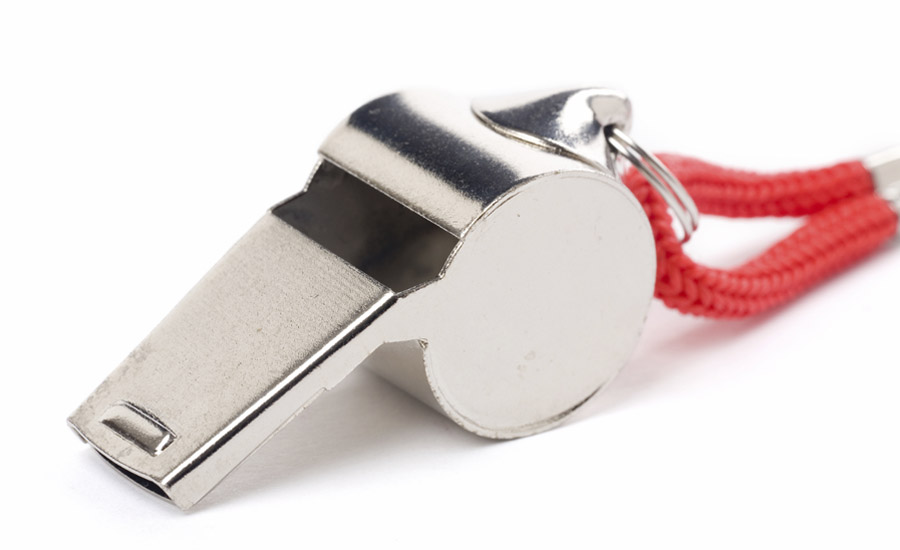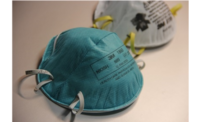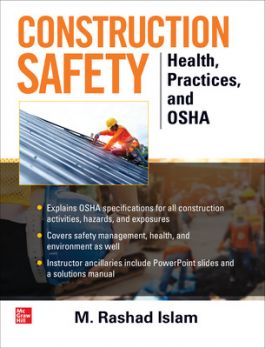National COSH: OSHA whistleblower complaints skyrocket during COVID-19
Illegal retaliation puts workers at risk, say safety advocates, as Inspector General warns of delays and calls for faster investigations

Imagine getting fired for requesting a mask, feeling sick, or suggesting safer work protocols that will reduce your risk of getting infected with COVID-19. This is the current reality of thousands of workers across the country and it is unfair and illegal. As complaints of retaliation against whistleblowers skyrocket during the COVID-19 pandemic, safety advocates say workers’ lives are at risk due to a slow and inadequate response from the U.S. Occupational Safety and Health Administration (OSHA).
“Workers are getting sick and dying every day,” said Jessica Martinez, co-executive director of the National Council for Occupational Safety and Health (National COSH). “But in far too many cases, when workers speak up to demand better safety, they are targeted for retaliation. OSHA is failing to give workers the protection they urgently need when they report dangers that put their lives and families at grave risk.”
According to an August 14 investigative report from the U.S. Department of Labor’s Office of Inspector General (OIG), OSHA received more than 4,100 complaints of illegal retaliation against whistleblowers during the first four months of the COVID-19 pandemic, from February 1 2020 through May 31 2020. This is a 30 percent increase compared to complaints received during the same four month period in 2019.
In Wisconsin, for example, meatpacking workers at Strauss Brands – many of them immigrants – say they were fired after they complained about the absence of safety protocols to protect against COVID-19.
Despite the urgency of enforcing public health and safety laws to stop the spread of a deadly virus, OSHA has reduced the number of whistleblower inspectors. It now takes 279 days – more than eight months – for OSHA to complete a whistleblower investigation, an 86 percent increase from 2010.
“OSHA was challenged to complete investigations in a timely manner before the pandemic and the potential exists for even greater delays now,” states the OIG report. “As COVID-19 illnesses and deaths continue to rise, OSHA needs to act quickly to investigate whistleblower complaints so employees feel protected when reporting unsafe working conditions.”
In June 2020, the National Employment Law Project surveyed more than 1,100 workers nationwide and found that one in eight reported “possible retaliatory actions by employers against workers in their company who have raised health and safety concerns during the pandemic.” Black workers were more than twice as likely as their white counterparts to report possible acts of employer retaliation.
“Silence about hazards in the workplace equals increased illness, injury and death for workers,” said Martinez. “We can’t allow employers to blackmail workers into silence by threatening their jobs and their livelihoods if they speak out about safety – and it’s unacceptable when Black workers, immigrants and other vulnerable groups are singled out for retaliation.”
“U.S. OSHA must act immediately and implement the inspector general’s recommendations,” said Marcy Goldstein-Gelb, also a co-director of National COSH. “Add staff. Cut red tape. Do whatever it takes to make protecting whistleblowers a priority. When workers can safely speak out, we can save lives in the workplace, and protect our families and communities.”
COVID-19 resources available from National COSH:
● COVID-19 fatality database, with public reports of more than 700 workers who have died after exposure from COVID-19. This represents just a fraction of total workplace fatalities from the pandemic.
● “A Safe and Just Return to Work,” a National COSH report with recommendations for keeping workers safe during COVID 19 from labor and community advocates, industrial hygienists, occupational health experts, attorneys, and physicians.
● Coronavirus Resources for Workers, including fact sheets by industry and occupation, guidelines on Personal Protective Equipment (PPE) and safe cleaning chemicals; information on Workers’ Compensation and other benefits, and more.
* * *
National COSH links the efforts of local worker health and safety coalitions in communities across the United States, advocating for elimination of preventable hazards in the workplace. For more information, please visit coshnetwork.org. Follow us at National Council for Occupational Safety and Health on Facebook, and @NationalCOSH on Twitter.
Looking for a reprint of this article?
From high-res PDFs to custom plaques, order your copy today!








